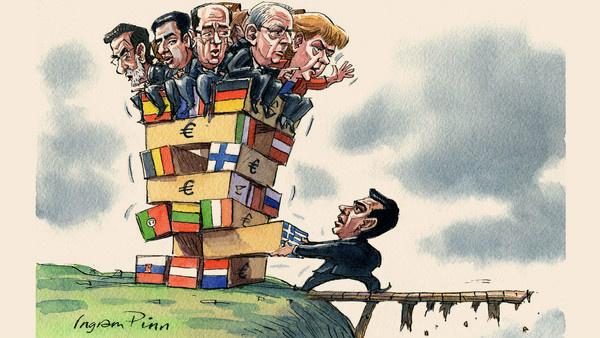Arvind Subramanian writes: Greece was offered two stark choices: Leave the eurozone without financing, or remain and receive support at the price of further austerity.
The benefits of Grexit would have included a massive devaluation, which would have restored some dynamism to what was once a fast-growing economy. But the costs were terrifying. The government would have had to default, the banks would have been ruined, and both would have struggled for years to regain the trust of financial markets. As a result, interest rates would have remained high for a long time to come, impeding efforts to restore growth. Is it any wonder that the Greek government shrank from this horror and chose the “safe” option of austerity?
The IMF could have offered the third option of an orderly exit. Greece should have been told that it could reap the benefits of devaluation, while the international community would act to minimize the attendant costs.
The IMF would have needed to offer generous financing, covering the country’s import requirements for, say, two years while providing the liquidity to manage the transition to a new currency. Of course, this would have increased the IMF’s already-large exposure to Greece; but this would have been a worthwhile trade-off, because it would have served a strategy that would have had a much better chance of success.
The reason why an assisted Grexit was never offered seems clear: Greece’s European creditors were vehemently opposed to the idea. But it is not clear that the IMF should have placed great weight on these concerns.
Ccreditor countries have been concerned about the financial costs to member governments that have lent to Greece. But Latin America in the 1980s showed that creditor countries stand a better chance of being repaid (in expected-value terms) when the debtor countries are actually able to grow.
From an Asian perspective, by defying its European shareholders, the IMF would have gone a long way toward heralding the emergence of a new institution: a truly International Monetary Fund, in place of today’s Euro-Atlantic Monetary Fund.
All is not lost. If the current strategy fails, the third option of assisted Grexit remains available. The IMF should plan for it. The Greek people deserve some real choices in the near future.

